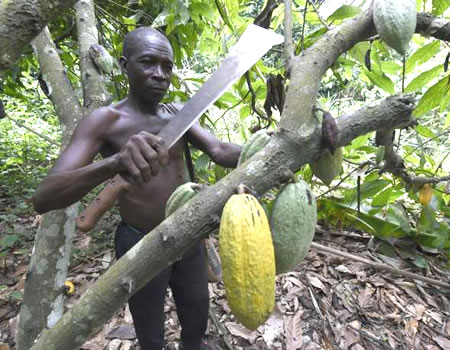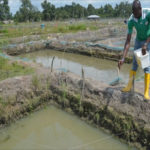The Nigerian Export Promotion Council (NEPC), has trained 100 cocoa farmers in Ogun State, to scale up its production in order to boost the nation’s economy.
The one-day training held last Wednesday, in Abeokuta, the Ogun State capital, was organised by the Federal Government agency, in collaboration with the State Ministry of Industry, Trade and Investment to ensure increase in the volume of processed cocoa being exported from Nigeria to our countries.
The South West Zonal Coordinator of NEPC, Samuel Oyeyipo, while addressing the cocoa farmers drawn across the state and other stakeholders, lamented decrease in production of cocoa in the country.
He noted that Nigeria produces 250,000 metric tonnes per annum against 800,000 and 2,000,000 metric tonnes produced by Ghana and Ivory Coast annually.
Oyeyipo said the training was part of the Council’s effort at helping stakeholders involved in the cocoa value chain scale up the production, processing, and marketing.
While urging cocoa farmers to take advantage of the large mass land and population to scale up production.
The theme of the one -day training was “Repositioning Nigeria’s Cocoa Beans for Increased Global Competitiveness”.
In his remarks, the Permanent Secretary, Ministry of Industry, Trade and Investment, Olu-Ola Aikulola, who spoke on Value Chain Export Development (VCED) for Cocoa stakeholders hinted that the shift from agriculture to oil in the 60s had negatively affected the exportation of cocoa in the country.
He pointed out that Nigeria had greatly benefitted from agriculture in developing the country years back, while re-emphasising the need to revive cocoa production to salvage the economy.
Aikulola lauded the NEPC for its efforts at boosting non-oil exports, while calling on the participants to utilise the knowledge gained to improve their businesses.
The Chairman, Cocoa Association of Nigeria, Ogun State chapter, Mr. Olusesan Sowunmi, commended NEPC for the training, saying it would impact on farmers and other stakeholders on planting, harvesting, processing, and marketing of their products both locally and internationally.
ALSO READ FROM NIGERIAN TRIBUNE






